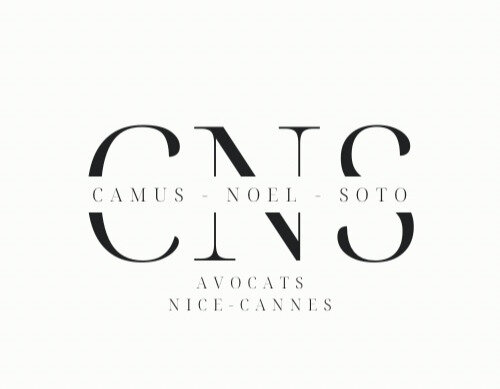Best Collaborative Law Lawyers in Cannes
Share your needs with us, get contacted by law firms.
Free. Takes 2 min.
Free Guide to Hiring a Family Lawyer
List of the best lawyers in Cannes, France
About Collaborative Law in Cannes, France
Collaborative Law in Cannes, France, offers an amicable approach to resolving legal disputes without going to court. This process involves parties in a dispute working alongside collaboratively trained lawyers who focus on negotiation and conflict resolution. The goal is to reach a mutually acceptable agreement through understanding, cooperation, and respect, rather than adversarial litigation.
Why You May Need a Lawyer
There are several situations in which you may require the guidance of a lawyer specialized in Collaborative Law in Cannes. This method can be particularly beneficial for family law matters such as divorce, child custody, and property settlement, as well as for business disputes. Collaborative Law allows you to maintain control over the outcomes while preserving relationships, and it often results in faster and more cost-effective resolutions than traditional court processes.
Local Laws Overview
France recognizes Collaborative Law as a means of alternative dispute resolution. In Cannes, similar to the rest of France, this method is supported by a legal framework that encourages negotiation, keeping judicial intervention as a last resort. Lawyers are trained to prioritize open communication and commitment to resolving the dispute outside of court. Key local legal principles include confidentiality agreements, transparent information sharing, and a formalized commitment to negotiate in good faith.
Frequently Asked Questions
What is the main advantage of Collaborative Law?
The main advantage is the ability to resolve disputes amicably without going to court, thereby preserving relationships and reducing litigation costs.
How does Collaborative Law differ from mediation?
While both methods aim for mutual agreement, Collaborative Law involves lawyers who actively participate in negotiations, whereas mediation is facilitated by a neutral third-party mediator.
Are the agreements reached in Collaborative Law legally binding?
Yes, once an agreement is reached, it can be made legally binding by a court of law, similar to agreements reached through traditional litigation.
What happens if we can't reach an agreement?
If an agreement isn't reached, the parties may need to pursue litigation. Importantly, the collaborative lawyers involved must withdraw, and new legal representation is required for court proceedings.
Is Collaborative Law suitable for every type of dispute?
No, Collaborative Law is most effective in disputes where both parties are willing to negotiate and communicate openly. It might not be suitable for all cases, particularly where there is a significant power imbalance or issues such as domestic violence.
How can I find a collaborative lawyer in Cannes?
You can start by contacting local bar associations, searching online directories, or asking for recommendations from those who have previously used collaborative legal services.
Are meetings held in a formal setting?
Meetings are typically informal and can be held in venues conducive to open discussion, such as law offices or neutral spaces.
Is Collaborative Law recognized internationally?
Yes, Collaborative Law is recognized globally, but processes and legal recognition can vary greatly between countries.
Can I choose to discontinue the collaborative process at any time?
Yes, either party can choose to withdraw from the collaborative process at any point, although it is encouraged to exhaust all negotiation possibilities first.
Will my personal information remain confidential?
Confidentiality is a cornerstone of the Collaborative Law process, with all parties agreeing to safeguard shared information.
Additional Resources
For more information and support, you may contact local legal aid societies or the French National Bar Council. Professional organizations, such as the Association Francaise des Avocats en Droit Collaboratif, can also provide guidance and information on trained collaborative law professionals in your area.
Next Steps
If you believe Collaborative Law could be beneficial for your situation, begin by consulting with a qualified collaborative lawyer in Cannes. Ensure they have experience in the relevant area of law pertaining to your dispute. Prepare for your consultation by gathering all pertinent information and documents, and consider discussing your goals and desired outcomes before the meeting.
Lawzana helps you find the best lawyers and law firms in Cannes through a curated and pre-screened list of qualified legal professionals. Our platform offers rankings and detailed profiles of attorneys and law firms, allowing you to compare based on practice areas, including Collaborative Law, experience, and client feedback.
Each profile includes a description of the firm's areas of practice, client reviews, team members and partners, year of establishment, spoken languages, office locations, contact information, social media presence, and any published articles or resources. Most firms on our platform speak English and are experienced in both local and international legal matters.
Get a quote from top-rated law firms in Cannes, France — quickly, securely, and without unnecessary hassle.
Disclaimer:
The information provided on this page is for general informational purposes only and does not constitute legal advice. While we strive to ensure the accuracy and relevance of the content, legal information may change over time, and interpretations of the law can vary. You should always consult with a qualified legal professional for advice specific to your situation.
We disclaim all liability for actions taken or not taken based on the content of this page. If you believe any information is incorrect or outdated, please contact us, and we will review and update it where appropriate.










